News
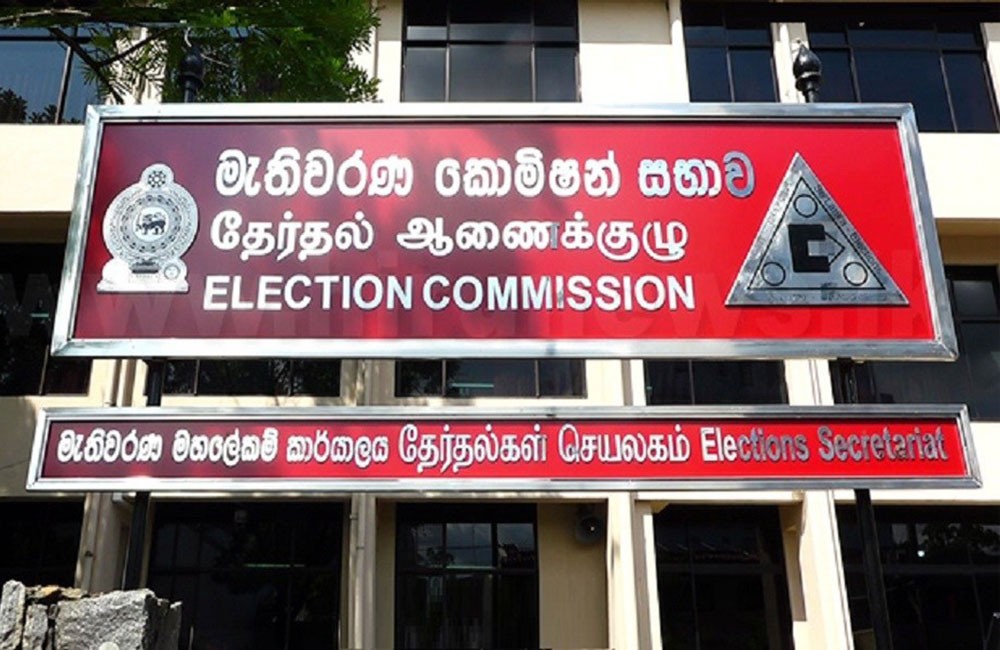
Campaigning for LG Elections Ends Tonight
Campaigning for the local government elections will conclude at midnight tonight, in accordance with the Election Commission’s directive that all campaigning must end 48 hours before the polls.
The elections are scheduled to be held on May 6.
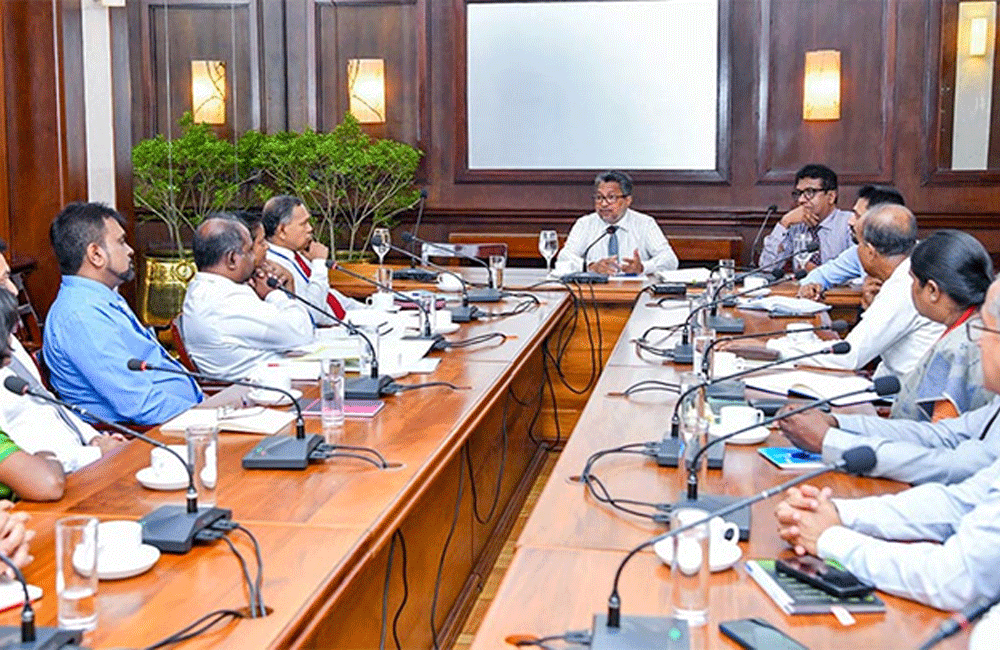
‘Clean Sri Lanka’ to launch 1,000-acre forest plantation project
Under the “Clean Sri Lanka” programme, plans are underway to launch a 1,000-acre forest plantation project in collaboration with the private sector, according to the President’s Media Division (PMD).
This large-scale initiative is designed to operate under the Public-Private-People Partnership (4P) concept and a preliminary discussion on the project was held today (30) at the Presidential Secretariat.
The discussion focused on resolving technical aspects associated with the project and addressing the fundamental issues necessary for the land release, the PMD reported.
The programme aims to implement several effective environmental projects in the coming year with the active participation of the private sector. These efforts are intended to safeguard the country’s biodiversity, forest cover and natural ecosystems, while also reinforcing the shared responsibility of the public, government and private sector in environmental conservation, the PMD said.
The discussion was chaired by Senior Additional Secretary to the President Mr. Russell Aponsu and Additional Secretary of the “Clean Sri Lanka” Programme Mr. S.P.C. Sugeeshwara, with the participation of senior officials from the Ministries of Agriculture, Livestock, Lands and Irrigation and Environment
-PMD-
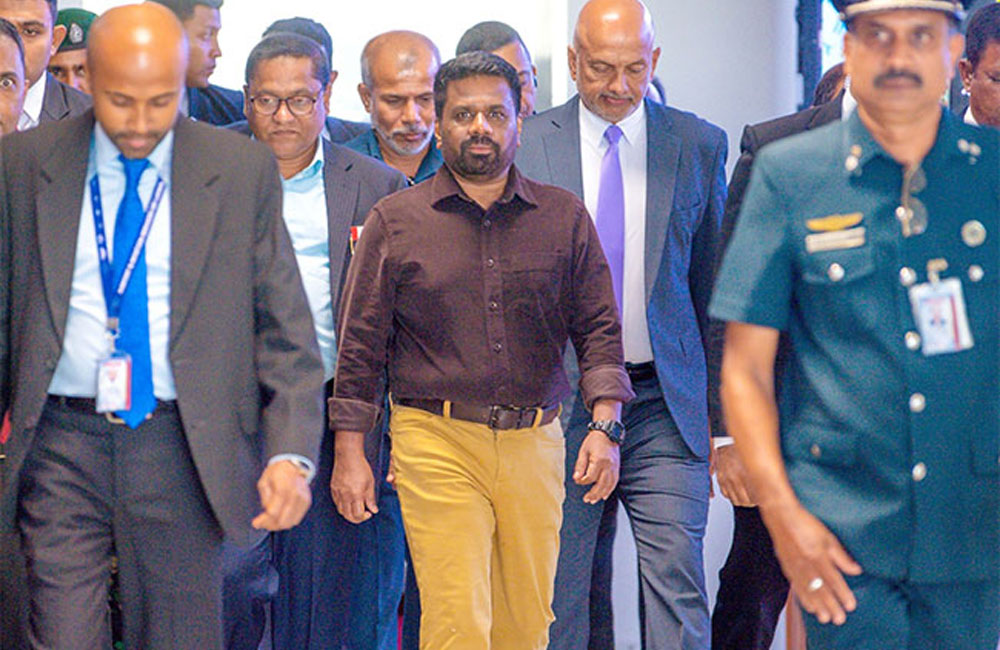
President Dissanayake leaves for state visit to Vietnam
President Anura Kumara Dissanayake departed for Vietnam a short while ago, commencing his official state visit to the Socialist Republic of Vietnam, according to the President’s Media Division (PMD).
At the invitation of the President of Vietnam, Luong Cuong, President Anura Kumara Dissanayake is undertaking a state visit to Vietnam from May 4 to 6.
This visit marks the celebration of 55 years of diplomatic relations between Sri Lanka and Vietnam and is expected to further strengthen the long-standing bilateral ties between the two nations.
During the visit, President Dissanayake will hold official discussions with the President and Prime Minister of Vietnam. He is also scheduled to meet with senior dignitaries, including the General Secretary of the Communist Party.
President Dissanayake will also participate as the chief guest at the United Nations Day of Vesak celebrations, scheduled to commence on May 6 in Ho Chi Minh City, where he will deliver the keynote address.
Several Memoranda of Understanding and Agreements are expected to be signed during the visit and discussions will be held with the Vietnamese business community to explore avenues for enhanced cooperation.
Minister of Foreign Affairs, Foreign Employment and Tourism, Vijitha Herath, along with a delegation of senior government officials, are accompanying President Dissanayake on this official visit.

Fuel prices reduced
Ceypetco fuel prices will be reduced from midnight today (30), the Ceylon Petroleum Corporation (Ceypetco) announced.
Accordingly, the price of Petrol Octane 92 will be reduced by Rs. 6 to Rs. 293 per litre, and Petrol Octane 95 by Rs. 20 to Rs. 341 per litre.
Auto Diesel will be reduced by Rs. 12 to Rs. 274 per litre and Super Diesel by Rs. 6 to Rs. 325 per litre.
Meanwhile, the price of Kerosene has been slashed by Rs. 5 to Rs. 178 per litre.
The revised rates are as follows:
Petrol 92 Octane – Rs. 293 (reduced by Rs. 06)
Petrol 95 Octane – Rs. 341 (reduced by Rs. 20)
Auto Diesel – Rs. 274 (reduced by Rs. 12)
Super diesel – Rs. 325 (reduced by Rs. 06)
Kerosene – Rs. 178 reduced by Rs. 05)
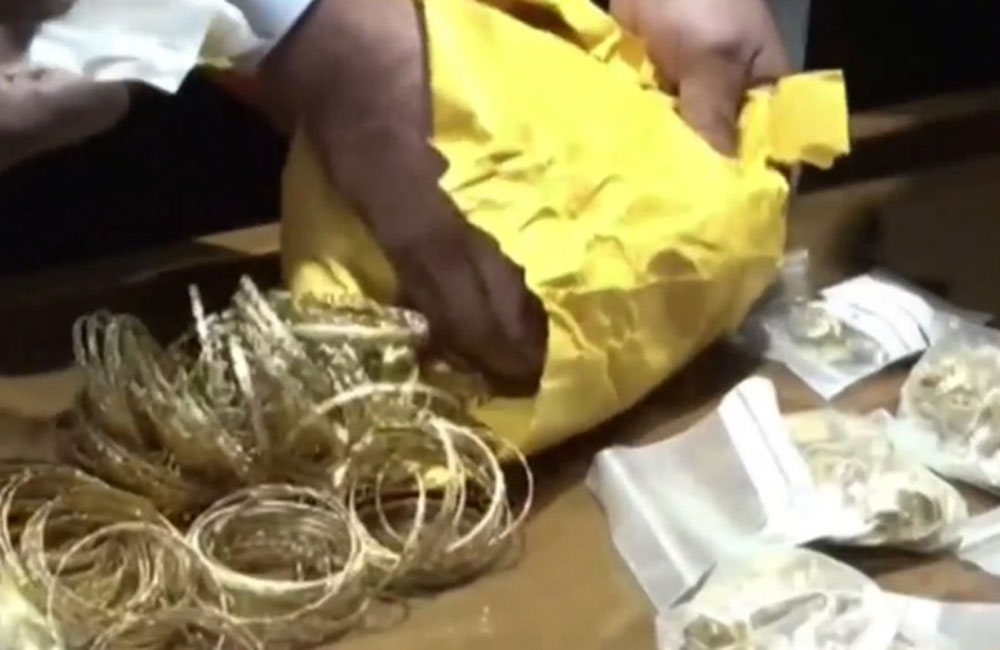
LTTE-Held Civilian Gold & Silver Handed Over to Police
Gold and silver belonging to civilians, which the Liberation Tigers of Tamil Eelam (LTTE) possessed during the war and were subsequently recovered by the military, have been officially handed over to the Inspector General of Police at the Army Headquarters in Battaramulla.
These items will then be transferred to the Central Bank of Sri Lanka via the National Gem and Jewellery Authority for valuation.
The army has also said that steps are underway to return these items to their rightful owners upon verification of their identities.
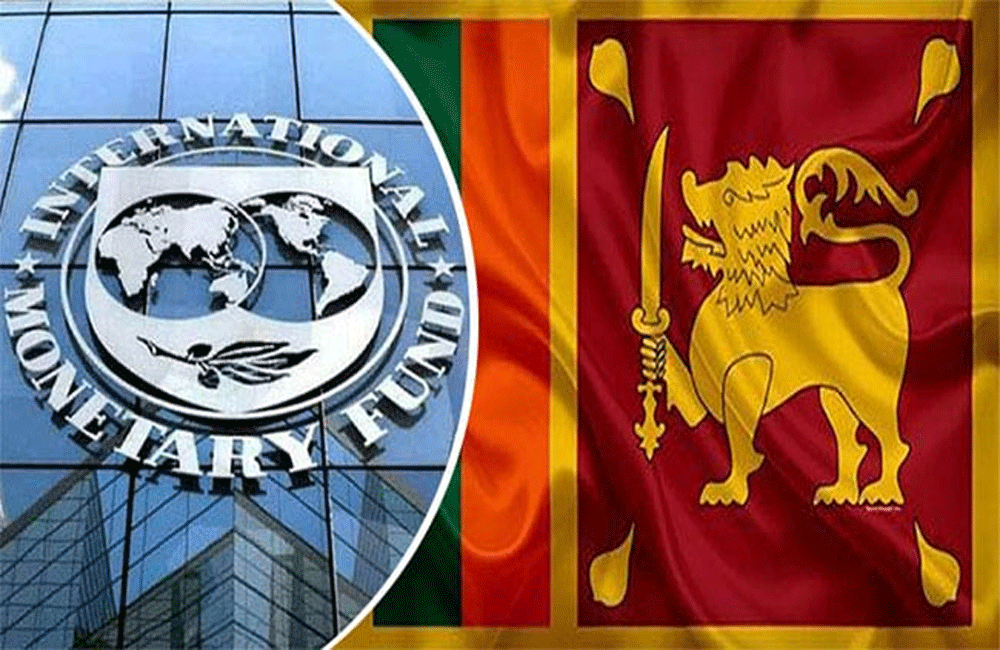
Sri Lanka Must Act Now on Electricity Cost Recovery : IMF
International Monetary Fund (IMF) Sri Lanka Mission Chief Evan Papageorgiou says Sri Lanka should restore cost-recovery electricity pricing as soon as possible to minimise fiscal risk and is essential to complete the fourth review of the Extended Fund Facility (EFF) program.
He stated this in response to a question raised during a virtual press conference on Tuesday (29).
He said the staff-level agreement is subject to IMF Executive Board approval, contingent on the implementation of prior actions relating to restoring electricity cost-recovery pricing and ensuring proper function of the automatic electricity price adjustment mechanism and the completion of financing assurances review, which will focus on confirming multilateral partners’ committed financing contributions and adequate debt restructuring progress.
Upon completion of the Executive Board review, Sri Lanka would have access to SDR254 million (about US$344 million), bringing the total IMF financial support disbursed under the arrangement to SDR1,270 million (about US$1,722 million).
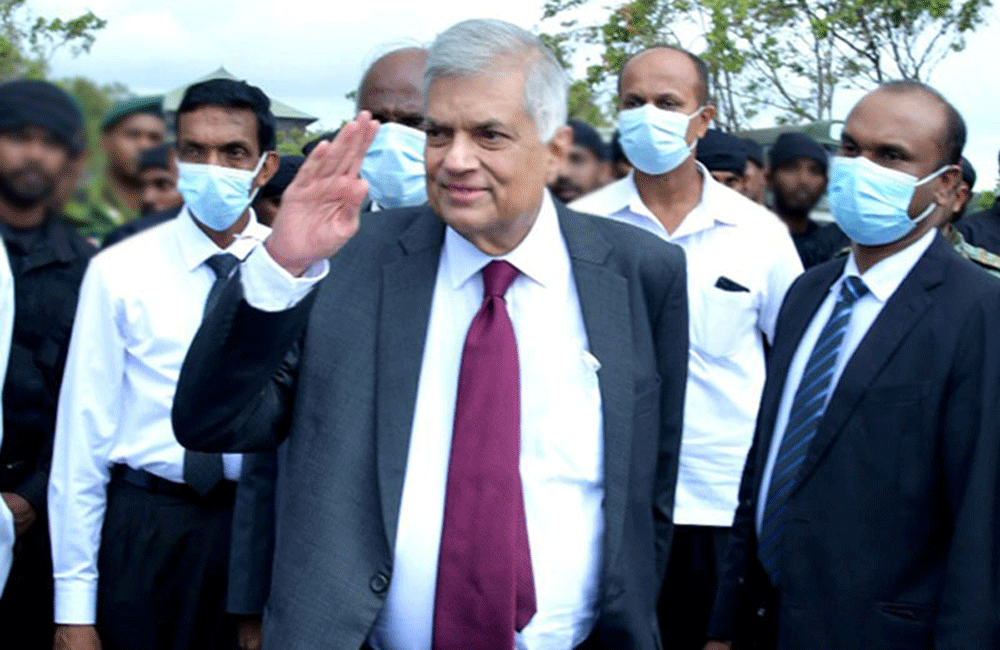
Ex-President Ranil’s top security officer transferred to Kankesanturai
Chief Inspector of Police Ashoka Ariyawansa, who served as the Chief Security Officer to former President Ranil Wickremesinghe has been transferred with immediate effect.
According to police sources, CI Ariyawansa has been reassigned to the Kankesanthurai Police, effective from today (01). The transfer has been approved by the National Police Commission.
Chief Inspector Ariyawansa has had a long-standing association with former President Wickremesinghe’s security detail, having served in his security unit for 23 years. He held the position of Chief Personal Security Officer to the former President for 15 years, playing a key role in ensuring his safety through multiple administrations and political transitions. No official reason has been provided for the transfer at this time.
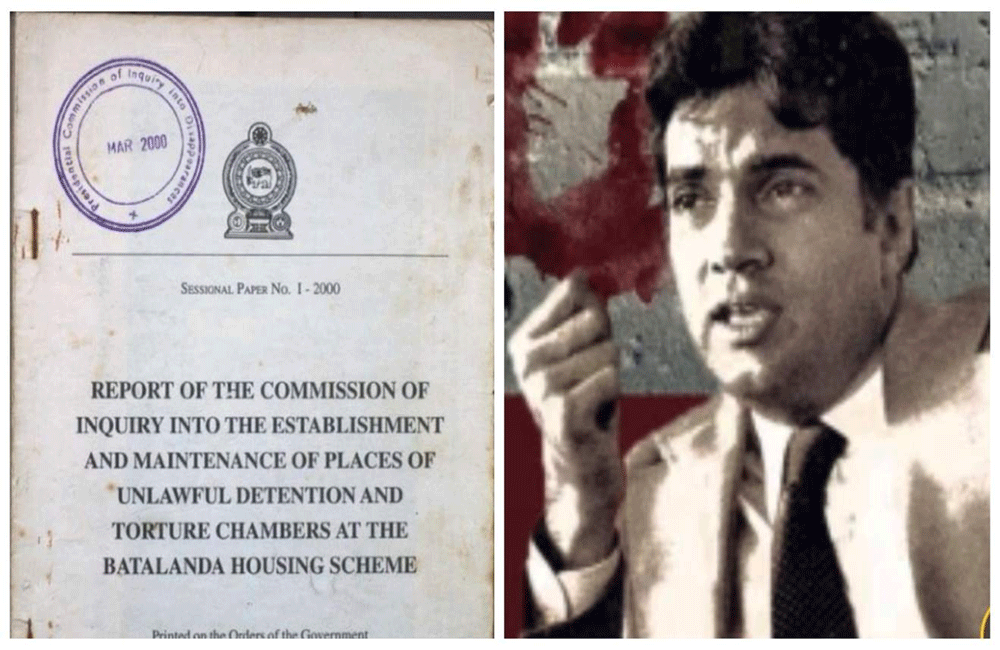
Batalanda Commission Report handed over to Attorney General
The Batalanda Commission Report has been officially handed over to the Attorney General, the President’s Office announced.
The ‘Batalanda Commission Report’ was tabled in Parliament on 14 March by the Leader of the House, Minister Bimal Rathnayake.
At the time, Minister Rathnayake informed Parliament that the report would be forwarded to the Attorney General for advice on necessary action.
He further said that President Anura Kumara Dissanayake would appoint a special committee to study and make recommendations on the report.
The Batalanda Commission Report was brought to the spotlight once again, following former President Ranil Wickremesinghe’s controversial interview with international media, Al Jazeera, this year.
At the time, responding to allegations of his involvement, former President Ranil Wickremesinghe rejected the findings of the Batalanda Commission report, claiming it was politically motivated.
Making a special statement, Wickremesinghe said that the commission was established with the sole purpose of discrediting him, but failed to achieve its objective.
He further said the report only mentioned his involvement in facilitating housing for police officers during the 1988-1990 insurgency, but did not implicate him in any other allegations.
What is the Batalanda Commission Report?
It concerns the alleged human rights violations, murders and disappearances that occurred during the 1988/90 period.
Upon assuming office as President, Chandrika Bandaranaike Kumaratunga established the Presidential Commission of Inquiry on September 21, 1995, to investigate these incidents.
Known as the Batalanda Commission, it was tasked with examining the illegal detention, torture, assassination and disappearances of individuals at the Batalanda Housing Scheme.
After nearly three years of gathering evidence, the commission submitted its report to President Kumaratunga in 1998, but the recommendations of the Batalanda Commission Report were never implemented.

Political Parties to Hold May Day Rallies Across the Country
Several major political parties have organized May Day rallies and demonstrations at various locations across the country today.
The main May Day rally of the National People's Power will take place at 3:30 p.m. at Galle Face Green in Colombo, under the patronage of President Anura Kumara Dissanayake.
According to Deputy Minister of Labour Mahinda Jayasinghe, the rally will be held under the theme "The People’s Power That Rebuilds the Nation."
The Samagi Jana Balawegaya will hold its main rally in Talawakelle today.
The party’s General Secretary, Ranjith Madduma Bandara says that the rally will be held under the theme "Workers' Power for the Battle to Empower the Village".
The Sri Lanka Podujana Peramuna’s main May Day rally is scheduled to be held in Nugegoda, according to the party's Media Spokesperson, Sanjeeva Edirimanna.
The Frontline Socialist Party will hold its May Day rally at the Lalith Athulathmudali Playground in Kirulapone.
Meanwhile, the United National Party will not conduct a central May Day rally this year.
Instead, the party will host a series of local government election rallies in each constituency.
Party Chairman Wajira Abeywardana said the meetings aim to inform and mobilize party members.
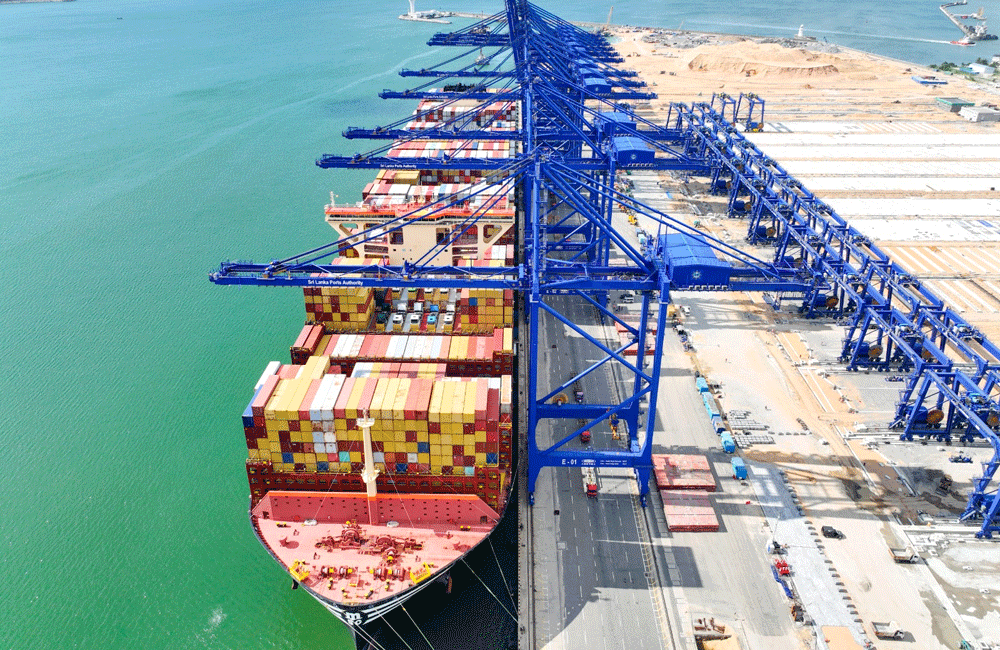
MSC Mariella becomes Largest-Ever Vessel to call at Colombo’s ECT
The Sri Lanka Ports Authority announced that the East Container Terminal had received its largest-ever container vessel with the arrival of the MSC Mariella, operated by the Mediterranean Shipping Company (MSC).
The MSC Mariella, constructed in 2023, measures 399.90 meters in length and 61.30 meters in width. This ultra-large container ship has the capacity to transport 24,346 containers. It boasts a deadweight tonnage (DWT) of 240,739.0 and can accommodate a maximum draft of 16.26 meters.
The event highlighted the Port of Colombo’s position as a key transshipment hub in the region and demonstrated its ability to handle some of the world’s largest and most sophisticated container ships, the Sri Lanka Ports Authority stated.
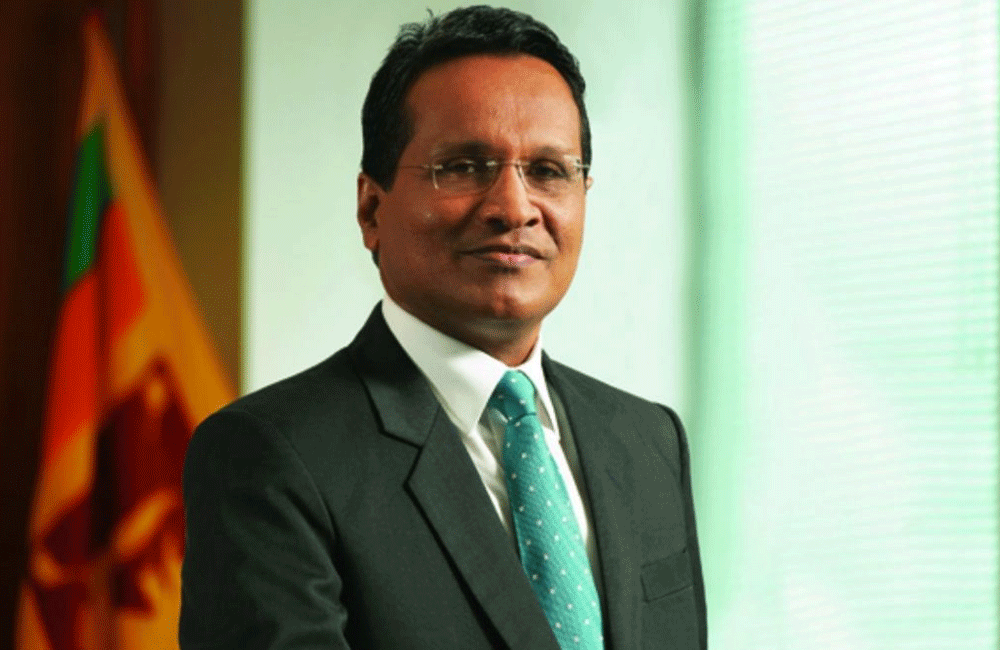
Viraj Dayaratne Appointed Acting Attorney General
President Anura Kumara Dissanayake has appointed Solicitor General Viraj Dayaratne as the Acting Attorney General.
The appointment comes as Attorney General Parinda Ranasinghe departs for an official visit to India.

Former president CBK files complaint with Election Commission
Former President Chandrika Bandaranaike Kumaratunga has lodged a written complaint with Election Commissioner General R.M.A.L. Ratnayake, alleging that her name and photograph
are being used for election campaigning without her consent.
In her letter, Kumaratunga states that candidates of the United Front, contesting under the chair symbol in the Attanagalla Pradeshiya Sabha constituency, have been distributing handbills featuring her photograph alongside images of Lasantha Alagiyawanna and Sarana Gunawardena.
She emphasizes that she has not granted permission for her name or image to be used.
Kumaratunga also informed the Election Commissioner that she had explicitly instructed all candidates contesting under the chair symbol not to use her name or photograph in any form.
She has requested the Election Commissioner to take immediate action to halt these activities, citing them as violations of election laws.
(Daily News)
Page 132 of 663